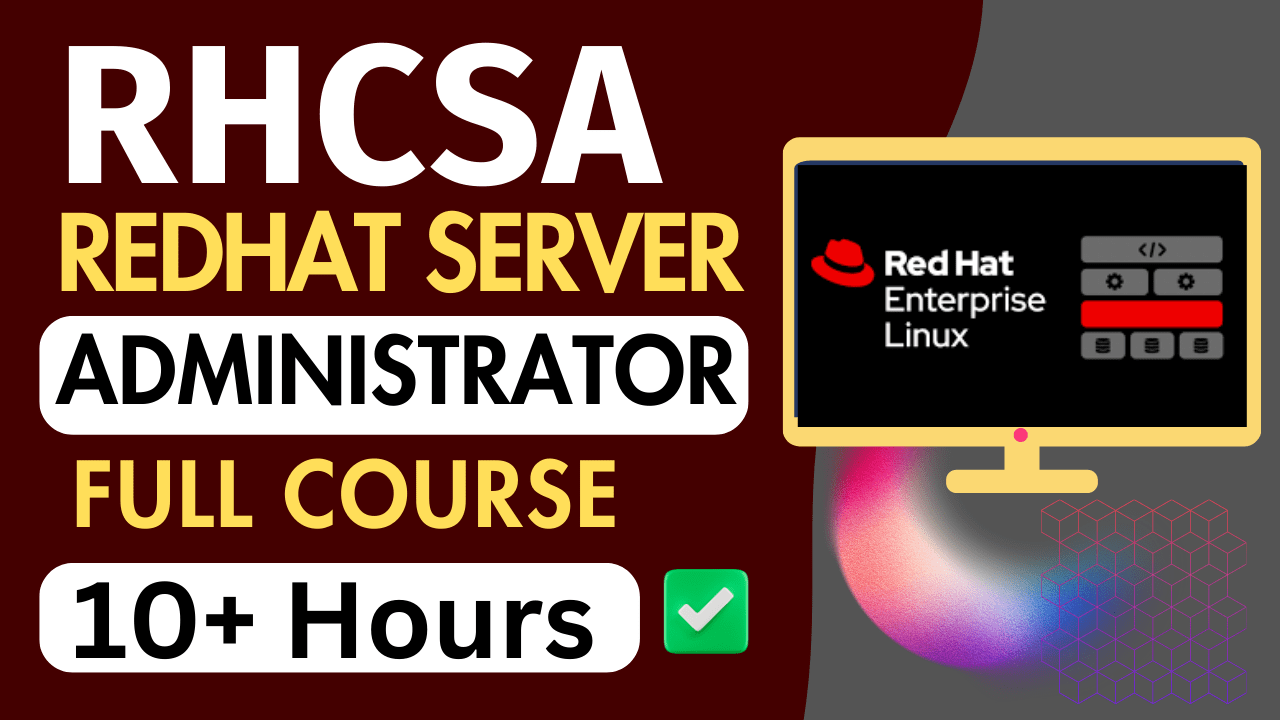About Video : unlock the full potential of Red Hat Linux Administrator with Advanced training. In this video you will learn how to manage linux with advanced. Also i shown basic to advanced lab to clear the doubt about topics. Don’t miss any video part for better understanding. and do like share to support my work. During Video session you will be able to understand what is red hat Linux and how to setup lab for practice. You will learn Bash shell in advanced with lab and user groups, other services , std input material, log server , secure shell service and many more. Thank you
In today’s technology-driven world, the role of a skilled server administrator has become indispensable. As organizations increasingly rely on robust and secure server environments, mastering the art of Red Hat Enterprise Linux (RHEL) Server administration can open doors to exciting career opportunities. In this blog post, we will explore the essential aspects of RHEL Server administration and how it can empower you to become a proficient Linux server administrator.
What We Learn ?
- Understanding RHEL Server: RHEL Server, developed by Red Hat Inc., is a powerful and widely-used operating system in enterprise environments. It offers a secure, stable, and scalable platform for hosting various services and applications. RHEL Server provides a rich set of tools and features, making it an ideal choice for organizations seeking reliability, performance, and flexibility.
- Installation and Configuration: To embark on your journey as a RHEL Server administrator, you need to start with the installation and configuration process. We will guide you through the step-by-step installation, including the partitioning scheme, package selection, and basic system configurations. We will also explore essential post-installation tasks to ensure your server is optimized for performance and security.
- User and Group Management: Managing users and groups is a crucial aspect of server administration. We will delve into the user management commands and techniques, including creating, modifying, and deleting user accounts. Additionally, we will cover group management, granting permissions, and implementing security best practices to maintain a robust user and group environment.
- File System Management: Efficiently managing the file system is essential for organizing data and ensuring proper resource allocation. We will explore the ext4 file system, its features, and advanced disk management tools like Logical Volume Manager (LVM). You will learn how to create, mount, and resize file systems, as well as implement disk quotas to enforce storage limits.
- Networking and Security: Networking and security are critical components of any server environment. We will dive into network configuration, including IP addressing, DNS setup, and network bonding. Additionally, we will discuss firewall management using iptables, securing remote access with SSH, and implementing various security measures to safeguard your RHEL Server.
- Service Management: RHEL Server is known for its ability to host a wide range of services, from web servers to database servers. We will explore the management of popular services like Apache, Nginx, MySQL/MariaDB, and SSH. You will learn how to start, stop, enable, and configure services, ensuring smooth operation and optimal performance.
- System Monitoring and Troubleshooting: As a server administrator, you need to monitor server performance, identify bottlenecks, and troubleshoot issues effectively. We will introduce you to powerful monitoring tools such as top, vmstat, and sar. We will also cover log file analysis, system diagnostics, and common troubleshooting techniques to maintain a stable and reliable server environment.
